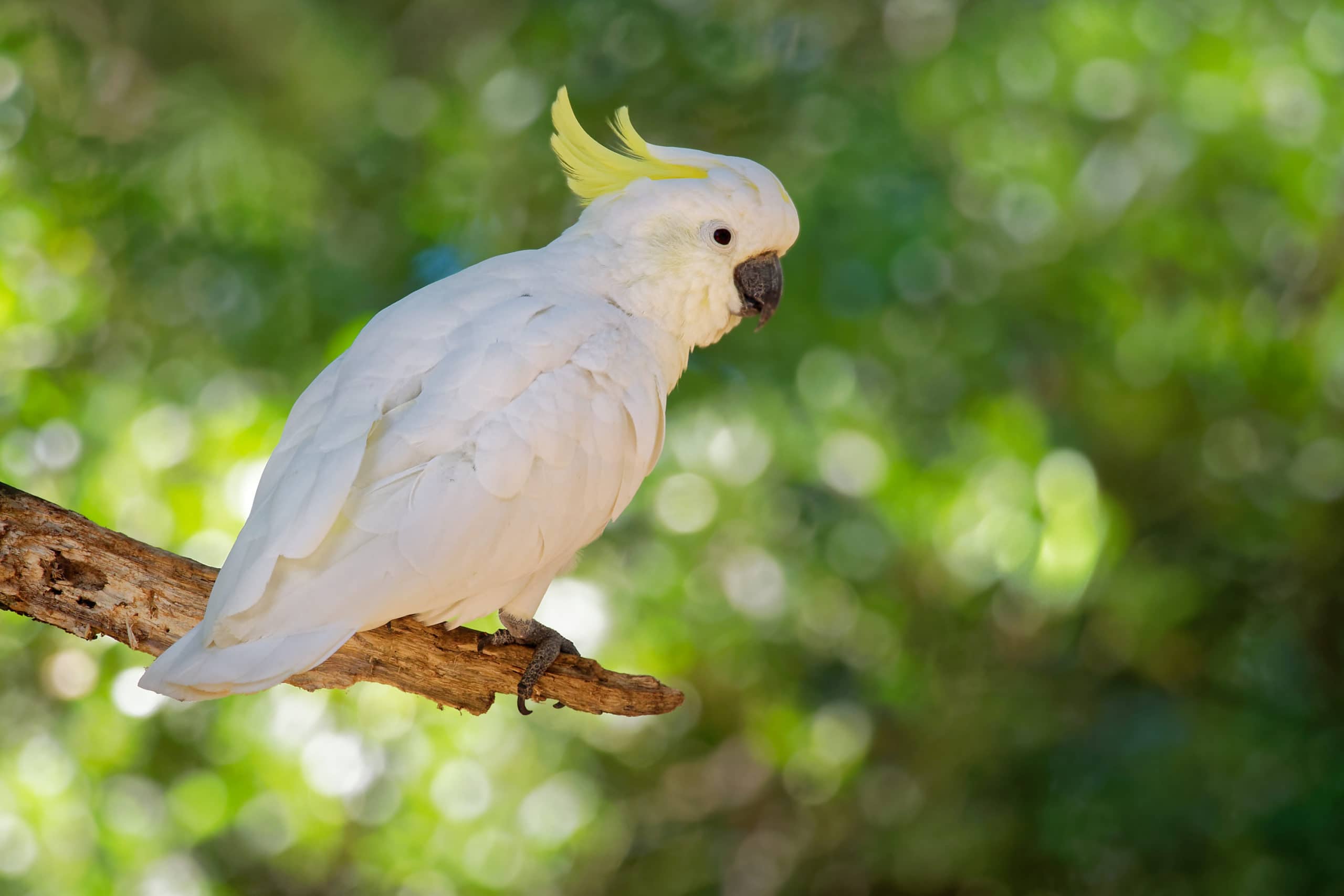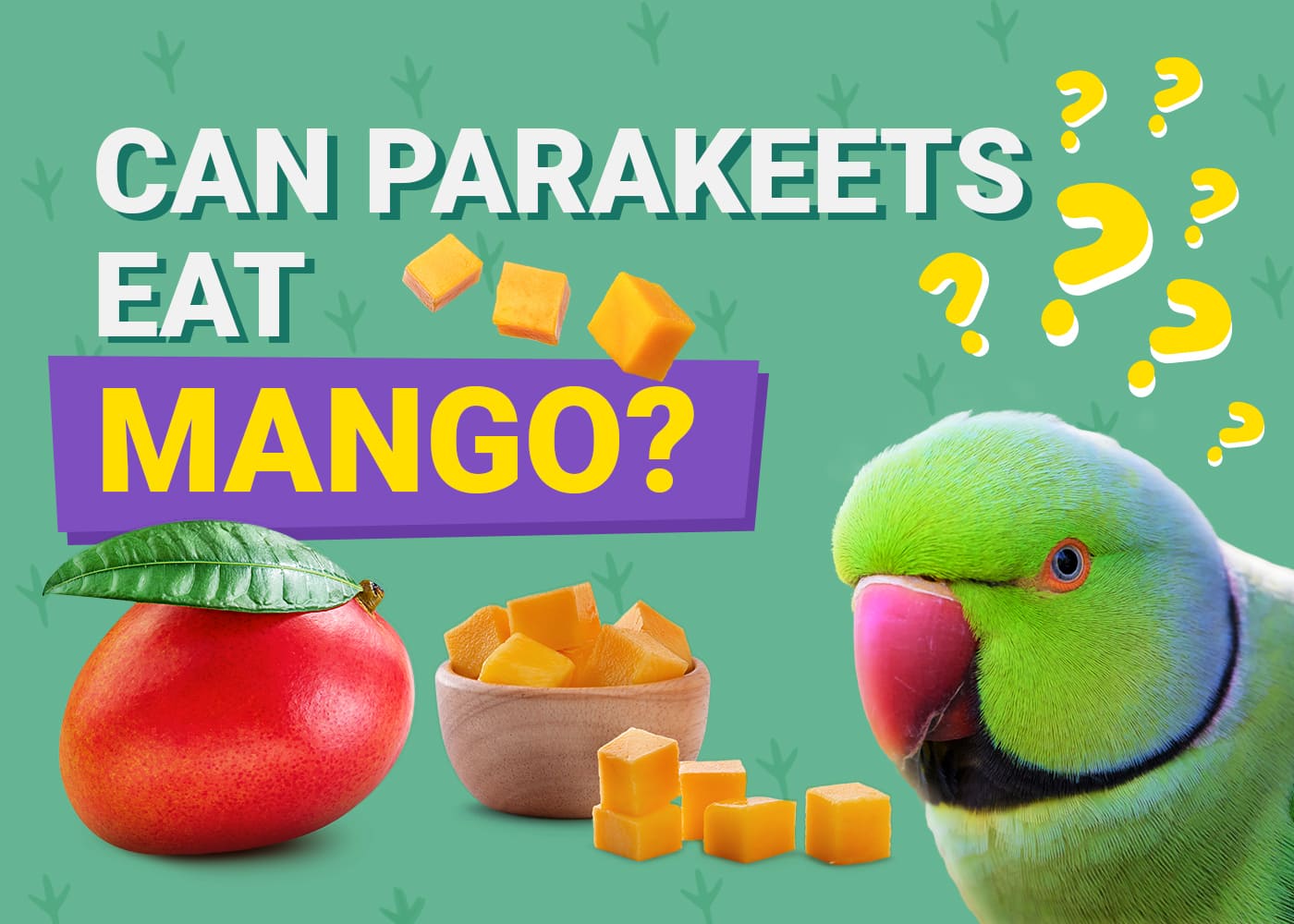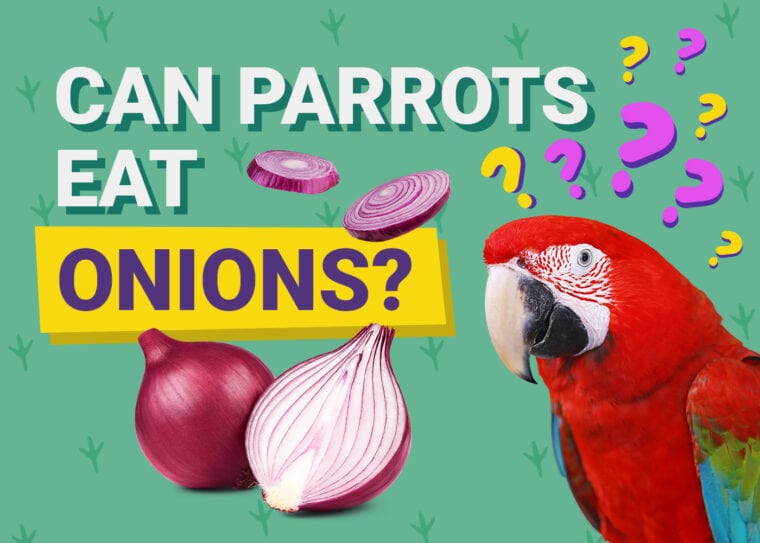
You’ve been chopping onions and turn away for no more than a second, but when you turn back, you see your parrot nibbling on a piece of onion. Should you panic? Is it okay if your parrot ate onion?
Unfortunately, onions are quite toxic for parrots, and even a small amount could make them ill. Enough onion can lead to your parrot’s death.
We look at why onions are unsafe for your parrot and what you should look out for if your parrot did eat onion.
A Brief Look at Onions
Onions are a staple part of many people’s diets. They are used in sandwiches, casseroles, soups, burgers, and salads. They come in several different shapes, sizes, and colors, but the kinds that we are most familiar with are yellow, red, and white.
If you eat immature onions, you are actually eating spring and summer onions, as well as scallions. Garlic, chives, leeks, and shallots are closely related to onions.
Onions are full of antioxidants and have anti-inflammatory effects that are linked to improving bone health and blood sugar levels.
However, there is a downside.

Problems With Onions
There aren’t as many issues with onions for people as there are for parrots, but they are known to cause bloating, gas, and heartburn. Onions are also known to be toxic to cats, dogs, monkeys, and horses.
But what about parrots? Let’s look at the parrot’s typical diet.
A Parrot’s Diet

Pellets are what usually comprise the bulk of a domestic parrot’s diet. These are mixtures of various foods, such as grains, seeds, vegetables, fruit, and added minerals and vitamins, that have been compressed into pellet form. On average, pellets should make up about 75% to 80% of the parrot’s diet.
In addition to the pellets, parrots should eat fresh vegetables and fruit, as well as grains and beans, which should make up about 20% to 25% of their diet.
But what about onions?
The 3 Dangers of Onions for Parrots
Onions, in every form, are dangerous for parrots. You should never feed your parrot anything from the onion family, including shallots, garlic, chives, leeks, etc. This also includes powdered onion or any food that contains onion, cooked or raw.
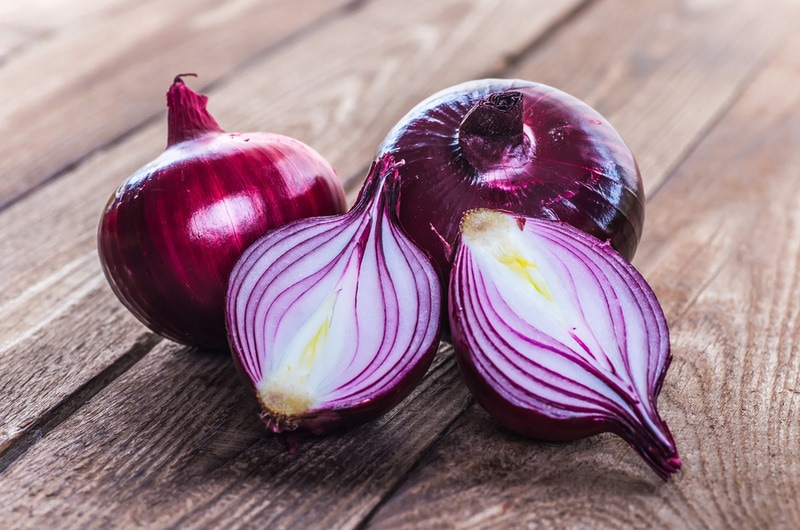
1. Hemolytic Anemia
Onions contain disulfides, which can cause Heinz body anemia, a kind of hemolytic anemia. Once they’ve been consumed, the disulfides can break down and rupture the red blood cells faster than the body can replace them.
Signs of Heinz body anemia include:
Typically, it takes up to a week after a parrot has ingested onion to notice these signs. In most cases, the damage has already been done.
2. Sulfur
Onions also contain sulfur compounds, which turn into the disulfides that can cause damage when chewed and swallowed. The damage that they do is twofold:
Signs include:
These signs are serious because they can lead to nutritional deficiencies, and small parrots will be affected faster than the large ones. However, even if you have a large parrot, the results will be the same.
3. Acidity
Onions are known for their acidity. This is what can give people heartburn. With parrots, the high acidity in onions can cause ulcers in the mouth and stomach. This is unlikely to occur if a parrot has only ingested a small amount of onion, but it’s not impossible.
Stomach ulcers in parrots can cause:
Parrots can also experience a kind of heartburn or reflux if they’ve eaten enough onion.
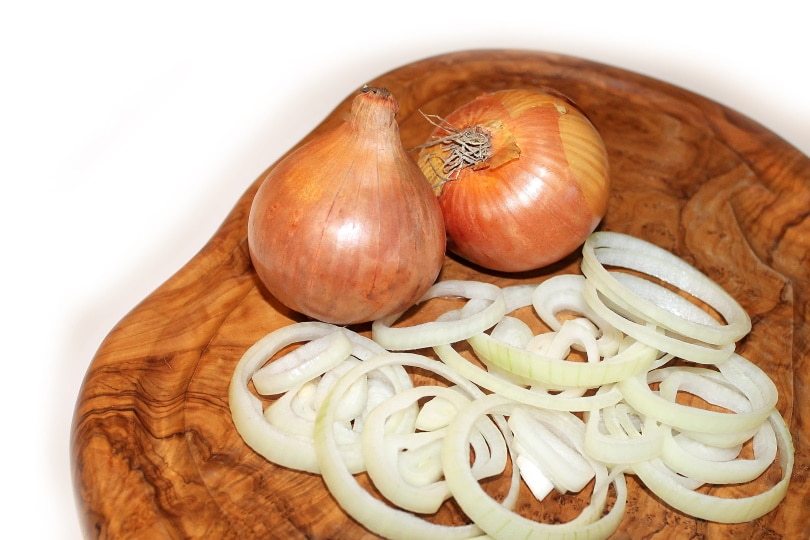
Do Parrots Actually Like Onions?
No, but they are curious and might eat a piece before you have the chance to snatch it away. If you’re cooking onions in butter or caramelizing them, these tend to be more appetizing because this sweetens them, so be sure to keep your parrot away while you are cooking or working with onions. The actual fumes of onions don’t cause harm, only their ingestion.
Can Onions Be Fatal for Parrots?
Yes, they can, but only if your parrot eats a large amount of onion. Keep in mind that if your parrot eats enough, anemia might result, which can also be fatal for your bird.
Signs that there’s something wrong with your parrot are:
If you suspect that your parrot has eaten onion or if you notice any of these signs, take your pet to your avian vet immediately. Time is of the essence and can mean the difference between your parrot living or dying.
What Should You Do If Your Parrot Eats Onion?
If your parrot ate only a tiny amount, chances are that they will be fine. But call your vet just to be sure. Your parrot might be okay or experience stomach upset, which could turn out to be messy.
However, if your parrot ate a large quantity of onion, take them to the clinic immediately. Your vet will flush the toxins of the onion from your parrot’s system using a crop wash (or crop lavage) to prevent the toxins from being absorbed. This is only effective if you get your parrot to the vet fast enough, though.
The vet might also induce vomiting in your pet to rid the digestive tract of the onion. If the treatment is successful, you’ll be given instructions on the aftercare of your parrot. This will include a healthy diet that will replace the minerals, nutrients, and vitamins that were lost during this whole ordeal.

A Warning About Cooking Around Parrots
While this isn’t specifically about onions, there is one thing that is even more deadly than onions for parrots that you may use while cooking them. If you own any cookware that is made with PTFE, which is a non-stick coating that is found in most cookware (Teflon is a well-known brand), using it around your parrot can actually prove fatal.
When PTFE is heated over 536°F (280°C), it releases a toxic gas that is colorless and odorless and that can poison your bird.
Signs of this kind of poisoning include:
To be safe, it’s best to ensure that your cookware is not made with PTFE if you have a parrot, as this kind of toxicity is even more dangerous than onions. In most cases, death is almost a guarantee.
Conclusion
When you’re the lucky owner of a pet, they are entirely dependent on you for their health and well-being. You need to be aware of what is good for your parrot and what is bad for them. Now you know that onions, in every form, are big no-no’s for your parrot.
If you’re ever concerned about your parrot’s health, always speak to your vet. It’s better to have your worries addressed than regret not acting sooner.
You May Also Like:
- Can Parrots Eat Almonds? What You Need to Know!
- Can Parrots Eat Peanut Butter? What You Need to Know!
Featured Image Credit: stevepb, Pixabay






